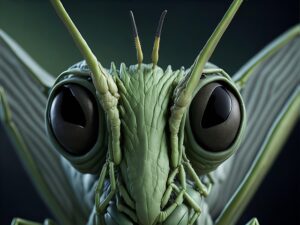Pest exterminators address diverse household pests like ants, rodents, bed bugs, and termites through tailored strategies. They utilize advanced tools, including baiting systems and eco-friendly solutions, to ensure resident and pet safety while eradicating infestations. These professionals employ methods like insecticides, heat treatment, and microwave technology for effective control with minimal environmental impact. Choosing the right products, maintaining hygiene, and regular inspections are key to prevention. Modern pest control emphasizes eco-friendly practices, making exterminators environmental stewards who promote sustainable living.
Pests can cause significant damage to homes and belongings, making it crucial to understand common pests and their behaviors. This article offers a comprehensive guide on pest extermination solutions, encompassing key aspects such as recognizing common pests, the role of professional pest exterminators, effective control methods, choosing the right products, prevention tips, and environmental considerations. By understanding these elements, homeowners can effectively manage and eliminate pest issues.
Understanding Common Pests and Their Behavior
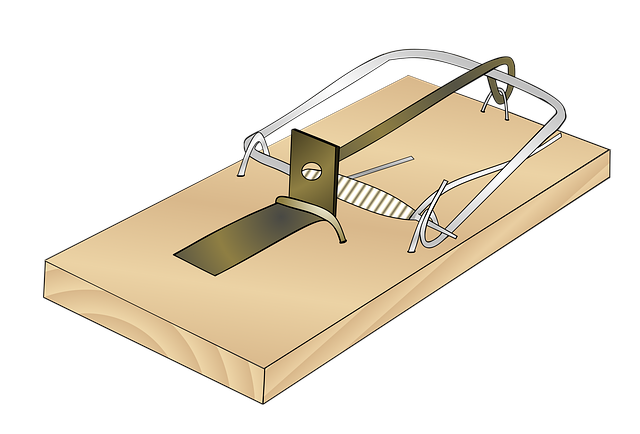
Pest exterminators often find themselves in a battle against common household pests, which can include ants, rodents, bed bugs, and termites. Understanding these pests’ behaviors is key to effective extermination. For instance, ants leave a trail of pheromones for others to follow, making it crucial to locate and disrupt their communication system. Rodents, on the other hand, are adept at finding hidden spaces, so thorough inspections are necessary to seal entry points. Bed bugs, known for their elusive nature, thrive in dark, secluded areas, often hiding within furniture and bedding. Termites, considered silent destroyers, feed on wood structures from the inside out, making early detection through professional inspections vital to saving homes.
Each pest has unique characteristics, and knowing these behaviors allows pest control professionals to employ tailored strategies. From baiting systems to targeted treatments, understanding their habits enables exterminators to provide effective solutions while ensuring the safety of residents and pets.
The Role of a Professional Pest Exterminator
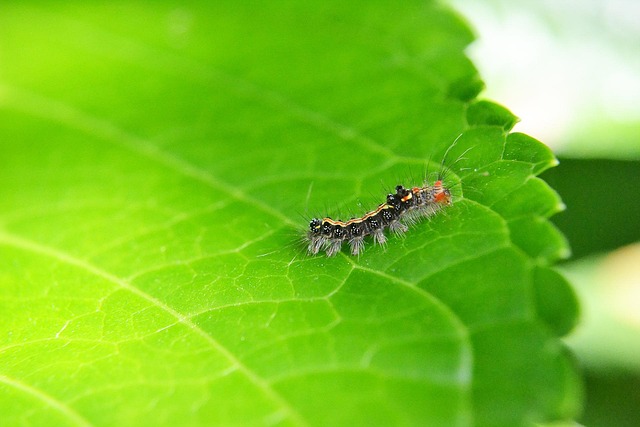
When dealing with pest infestations, whether it’s ants in your kitchen or rodents in your attic, turning to a professional pest exterminator is often the most effective solution. These experts are trained to identify and eliminate various pests using safe, targeted methods. They bring advanced tools and treatments that are not readily available to homeowners, ensuring a thorough and fast fix.
A good pest exterminator will first assess the extent of the infestation and then develop a customized plan. This might involve setting traps, applying insecticides, or utilizing other eco-friendly solutions. Regular inspections are also crucial to prevent future invasions, and professionals can advise on long-term strategies to keep your home pest-free. Their expertise ensures that treatments are applied safely, with minimal risk to pets, children, and the environment.
Effective Pest Control Methods and Treatments
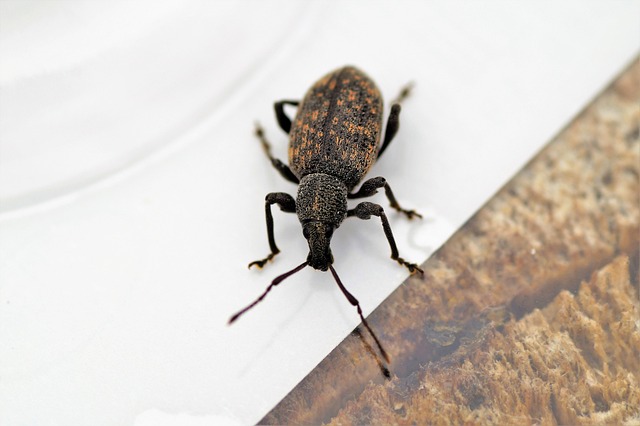
Pest control is a multifaceted approach, and professional pest exterminators employ various effective methods to manage and eradicate infestations. One common strategy involves the application of insecticides, which can be in the form of liquid sprays, dusts, or baits. These chemicals are designed to target specific pests, disrupting their nervous systems and rendering them ineffective. For example, pyrethroids, a synthetic version of natural pesticides, are widely used due to their fast-acting properties and minimal environmental impact.
Another powerful tool in the arsenal of pest exterminators is heat treatment, especially useful for treating bed bugs and certain types of insects. This method involves heating infested areas to temperatures that are fatal to pests, ensuring a thorough and rapid elimination. Additionally, modern technology has introduced innovative solutions like microwave treatments, which offer precise targeting and minimal damage to surroundings, making it an eco-friendly option. These advanced techniques showcase the commitment of pest control professionals to delivering effective, safe, and environmentally conscious services.
Choosing the Right Extermination Products for Your Home
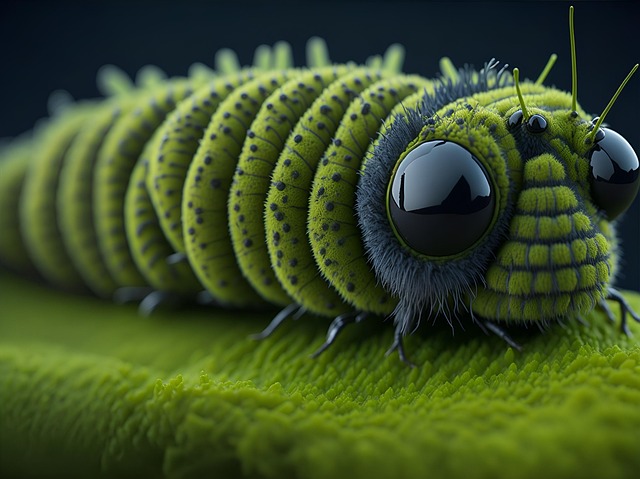
When selecting pest extermination products, it’s crucial to choose solutions tailored to your specific home and pest issues. A reputable pest exterminator can guide you in this process, offering treatments that are both effective and safe for your family and pets. Look for products with proven track records, considering factors like active ingredients, application methods, and environmental impact.
Understanding the different types of pesticides available – such as insecticides, rodenticides, and fungicides – is essential. Each targets specific pests, so identify the intruders before picking a product. Moreover, consider eco-friendly options that minimise harm to non-target organisms and reduce environmental pollution, aligning with responsible pest management practices.
Tips for Preventing Pest Infestations

Preventing pest infestations is a proactive approach that can save you time, money, and potential health risks associated with eliminating pests once they’ve taken hold. The first line of defense is maintaining good hygiene and sanitation practices. Pests are attracted to food sources and breeding grounds, so keeping your living and working spaces clean is essential. Regularly clear away clutter, especially in kitchens and dining areas, as these can provide hiding spots for pests. Ensure proper food storage by using airtight containers and practicing safe cooking and cleaning habits.
Additionally, sealing entry points such as cracks, gaps around windows and doors, and utility pipes can significantly reduce pest access. Installing screens on windows and doors, and regularly checking for any signs of damage or intrusion, is a practical step. Maintaining a clean and lush garden, trimming trees and shrubs, and removing potential water sources like stagnant pools or leaks can also deter pests from seeking shelter in your environment. Regular inspections by a professional pest exterminator are invaluable, as they can identify potential issues before they become full-blown infestations.
Addressing Environmental Concerns in Pest Management
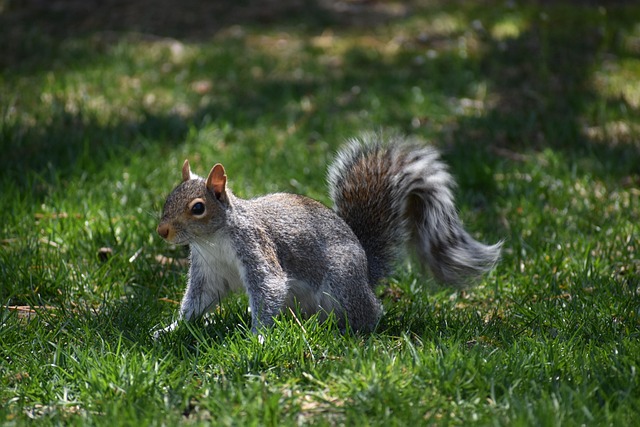
In the realm of pest extermination, environmental considerations have become increasingly important as folks become more aware of the impact of chemical usage on their surroundings. A responsible pest exterminator understands that effective treatment doesn’t have to come at the expense of a healthy ecosystem. They prioritize eco-friendly methods and products whenever possible, ensuring that the processes used are safe for both residents and the local environment.
By integrating sustainable practices, professional exterminators can significantly reduce the ecological footprint of their work. This might include using organic pesticides, implementing preventive measures like sealing entry points to deter pests naturally, or employing heat treatment and cold treatment methods as alternatives to chemicals. Such approaches not only reflect a commitment to environmental stewardship but also contribute to a healthier and more vibrant landscape for all inhabitants.
